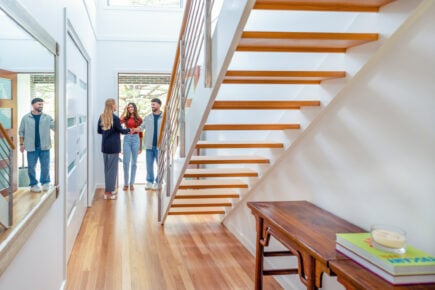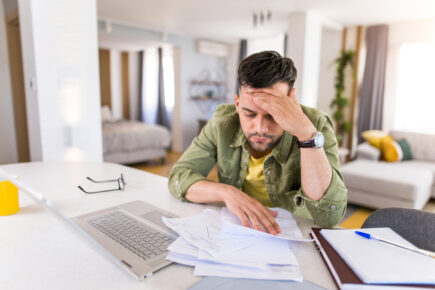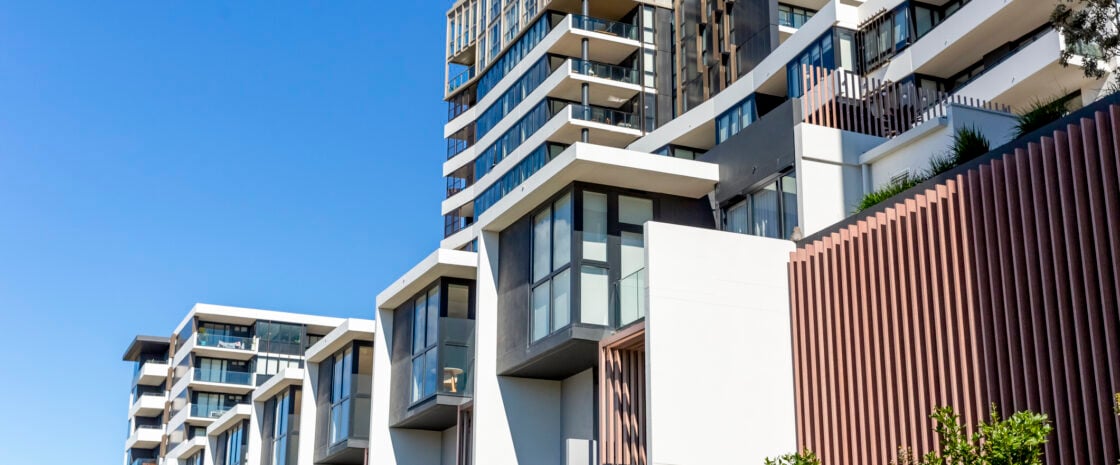While there’s no hard and fast rule on how much you should spend on rent, aiming for 30% of your gross income is a good place to start. By keeping your rental payment at a manageable level, you can help to avoid rental stress.
Rental stress is a term used to describe households at risk of having difficulty paying the rent.
» MORE: Renting vs. buying in Australia
How calculate how much rent you can afford
Before you start: When calculating how much you can afford to spend on rent, you first need to determine your gross income. This is the money you earn before tax is taken out. If your employer withholds tax for you, your gross income is often written on your payslip. However, if your tax is not withheld, your gross income is what gets deposited into your account.
Here is a straightforward formula to calculate how much rent you can afford based on 30% of your gross income.
Weekly gross income x 0.30 = rental budget.
For example, if you earn $1,000 each week before tax, then your weekly rental budget would be $300.
If you have a salary, this budget is easier to calculate as you will likely be getting paid the same amount each pay period.
However, if you are a casual or part-time employee, it can be a little trickier to determine your income. So, to be on the safe side, you can estimate your rental budget based on a week with a smaller income. That way, you can be sure you can afford rent even on weeks you may not work as many hours.
Typical rent in Australia
If 30% of your income feels like a stretch, don’t panic, you’re not alone. According to data from the Australian Bureau of Statistics and CoreLogic, the percentage of income to rent sits closer to 50%.
This is likely due to the fact that capital cities are often more expensive than rural areas. Just remember, the 30% rule is a guideline, not law. If you have to use more of your income on rent, just be mindful of your other expenses. For example, reduce your recreational spending until you can comfortably cover your bills.
Rent and income data by capital city
| Capital city | Median weekly rent | Median weekly gross income | Percentage of income to rent |
|---|---|---|---|
| Sydney | $770 | $1,400 | 55% |
| Melbourne | $589 | $1,341 | 44% |
| Brisbane | $649 | $1,347 | 48% |
| Adelaide | $589 | $1,200 | 49% |
| Perth | $669 | $1,346 | 50% |
| Hobart | $547 | $1,282 | 43% |
| Darwin | $617 | $1,427 (NT) | 43% |
| Canberra | $674 | $1,550 (ACT) | 43% |
| National | $627 | $1,300 | 48% |
Sources: Median weekly rent data from CoreLogic (April 2024)[1]. Median weekly income data from Australian Bureau of Statistics (August 2023)[2].
Capital city median rent
Sydney is currently Australia’s most expensive city to rent in, while Hobart is the most affordable, according to data from Core Logic[1].
| CITY | MEDIAN WEEKLY RENT | Weekly gross income required (for rent to be 30% of income) |
|---|---|---|
| Sydney | $770 | $2,567 |
| Melbourne | $589 | $1,963 |
| Brisbane | $649 | $2,163 |
| Adelaide | $589 | $1,963 |
| Perth | $669 | $2,230 |
| Hobart | $547 | $1,823 |
| Darwin | $617 | $2,057 |
| Canberra | $674 | $2,247 |
| National | $627 | $2,090 |
Source: Median weekly rent data from CoreLogic (April 2024)[1].
How to reduce rental costs
If you happen to live in one of Australia’s more expensive rental and real estate markets, there are strategies to reduce your expenses, such as:
- living with housemates
- walking or biking to work or school instead of driving or taking public transport
- searching for rentals in more affordable suburbs further from the city centre with transit routes into town
- renting out your parking space if you’re not using it.
Rental assistance
You may be eligible for rental assistance if you’re already receiving support through Centrelink. The amount of rental assistance you can get is based on your rental payment and the Centerlink program you’re enrolled in.
You can also check out rental assistance programs for your State or Territory:
- ACT: Rent relief fund.
- New South Wales: Private rental assistance programs.
- Northern Territories: Affordable housing schemes.
- Queensland: Financial help with renting.
- South Australia: Private rental assistance.
- Tasmania: Private rent assistance.
- Victoria: Help with renting.
- Western Australia: Rent relief program and private rental aboriginal assistance loans.
» MORE: 25 ways to make money online, offline and from home
Other costs to include in your rental budget
When living in a rental property, you also need to budget for bills and a number of other expenses. While these costs are not included in the 30% rule, they can play a part in how much rent you can afford. For example, if you save money on bills and transport, you may be able to afford a place with higher rent.
Bills
Rental agreements do not typically cover utility bills, such as electricity. Like rental costs, the price of electricity is also rising. In the 12 months to June 2024, household electricity prices increased by 7.5% across Australia’s eight capital cities[3].
You also need to consider the cost of your internet connection when calculating your monthly expenses, as well as entertainment spend on things like streaming services.
Rental bond or deposit
If you’re a first-time renter, you’ll typically need to pay a bond, also called a deposit, when you move in. This can range from two to four weeks’ rent, sometimes higher.
Rental bonds act as a type of protection should there be any damage to the property, missed payments or cleaning required when you leave. You will get this money back when you move out, pending the condition of the property.
Location-specific expenses
Proximity to where you work, socialise or study is an important factor to consider. Driving long distances or paying for public transport daily can quickly add up. And, depending on the suburb, you may pay more for day-to-day items such as petrol, groceries, parking or even take-away coffee. So, consider the local living costs when looking for a rental.
Tips on how to rent a property
- Browse online: For first-time renters, browsing properties online is a good starting point. Rental websites allow you to filter properties by price, location and property type, so you can get idea of what’s available in your budget
- Visit the property in person: It’s important to visit rental properties during in-person inspections. Photos online can be misleading and seeing properties for yourself can help you accurately compare options within a similar price range.
- Get your documents ready: When you apply to rent a property, you will likely need to provide a range of information, such as proof of income, bank statements and rental history (if you have it). These items show the property manager you are capable of meeting your repayments. There is no typical time frame for how long it takes to secure a rental. The market is largely driven by supply and demand, meaning it may take longer to secure a rental in a high-demand market.
- Know your rights: Every state and territory in Australia has resources for renters that outline tenants’ rights to safe housing. If you want to learn more about your rights, or have concerns about your rental situation, contact your local government tenancy authority.
Article Sources
-
CoreLogic, “Rent growth picked up in the start of 2024, taking rents to new record highs,” accessed August 20, 2024.
-
Australian Bureau of Statistics (ABS), “Characteristics of Employment, Australia (Employee earnings),” accessed August 20, 2024.
-
Australian Bureau of Statistics (ABS), “Monthly Consumer Price Index Indicator (June 2024),” accessed August 20, 2024.
DIVE EVEN DEEPER

Can You Pay Rent With A Credit Card In Australia?
You can pay rent with a credit card using a third-party platform. Doing so may help earn rewards, but there are pros and cons to consider.

Living In A Private Rental: What To Know
Renters may enjoy having a streamlined relationship with a private landlord, but before signing a lease, consider the pros and cons of living at a private rental.

How to Handle a Rent Increase
When you’re living on a budget, an unforeseen rental hike can push you into financial stress, but there are laws to protect you.

How to Save for a House Deposit
How you save for a deposit and how long it takes you will be a good indicator not only of how well you manage your finances but how much you can realistically afford in regular mortgage repayments.

